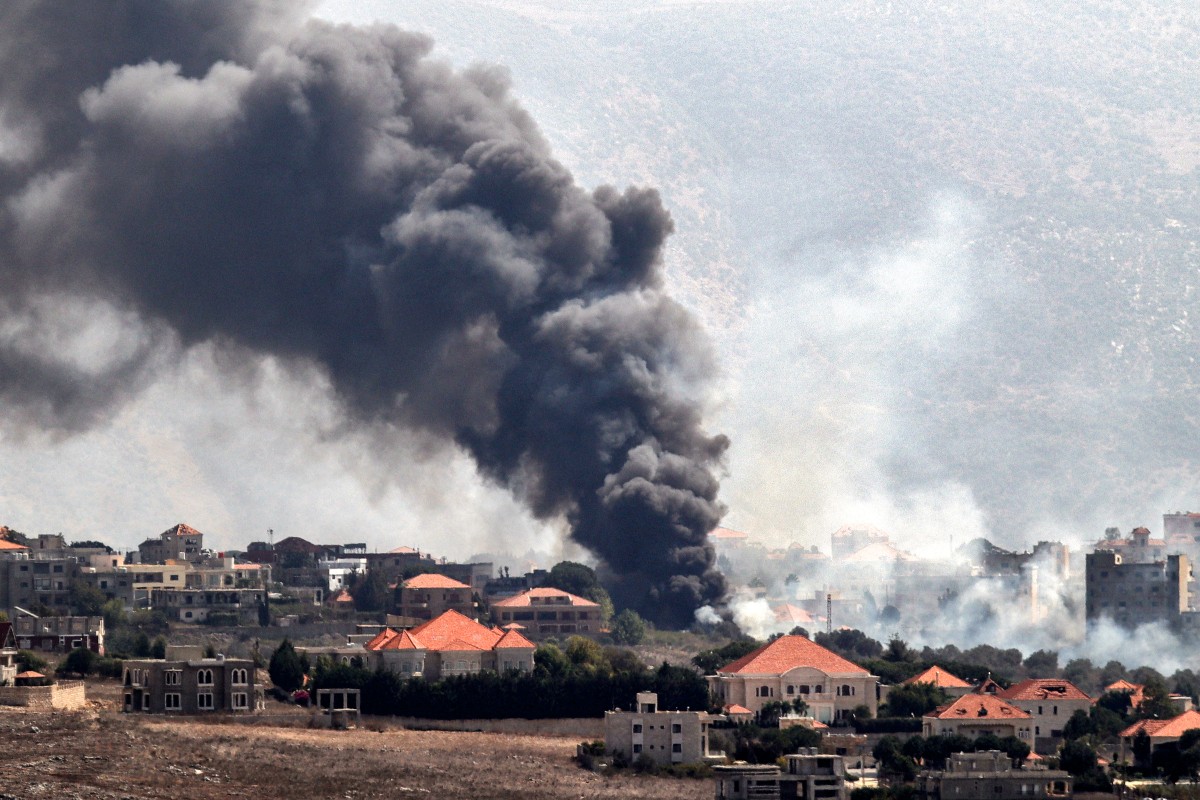Beirut, Lebanon – Human Rights Watch on Monday said Israeli strikes near the main Lebanon-Syria border crossing were putting civilians at “grave risk” as they prevented them from fleeing and hampered humanitarian operations.
The Israeli military said Friday its jets struck Hezbollah positions near the Masnaa border crossing in Lebanon’s eastern Bekaa Valley.
Syrian transport ministry official Sleiman Khalil told AFP on Monday the road was still “completely cut off to vehicle traffic”, but people could still cross on foot.
Human Rights Watch said the strikes were “impeding civilians trying to flee and disrupting humanitarian operations”, adding: “The situation places civilians at grave risk.”
“An Israeli attack on a legitimate military target may still be unlawful if it can be expected to cause immediate civilian harm disproportionate to the anticipated military gain,” it said in a statement.
If Hezbollah used the crossing to transfer weapons, the Iran-backed group too “may be failing to take all feasible precautions to protect civilians under their control”, HRW added.
The Israeli military said it “struck an underground tunnel” crossing the border that “enables the transfer and storage of large quantities of weapons underground”.
“The tunnel’s operations were led by the 4400 Unit, the unit responsible for the transportation of weapons from Iran and its proxies to Hezbollah in Lebanon,” the military added.
The head of the United Nations refugee agency, Filippo Grandi, said Monday that the flow of people “has declined, but still, hundreds of people are coming through, and they’re also coming through other border points”.
Red Crescent volunteers are “helping people transport their goods across the border” while the road remains cut, Grandi added during a visit to the Syrian side of the crossing, known as Jdeidet Yabus.
‘Considerable civilian harm’
On Friday, an AFP photographer saw people carrying children and bags as they walked around a crater where a strike had hit.
Lebanese authorities said Friday that more than 370,000 people had crossed from Lebanon into Syria since September 23, most of them Syrian nationals.
Grandi noted that Palestinians, Sudanese, and people of other nationalities have also crossed the border, alongside Lebanese and Syrians.
More than 774,000 Syrian refugees were registered with the United Nations in Lebanon before the latest escalation, although the tiny country said it hosted some two million — the world’s highest ratio of refugees per capita.
HRW’s Lama Fakih said that “by making a border crossing inaccessible at a time when hundreds of thousands of people are fleeing fighting and many others require aid, the Israeli military threatens considerable civilian harm.”
Even if the crossing were used for military purposes, “Israel would need to take into account the expected civilian harm compared to the anticipated military gain”, she added in the statement.








